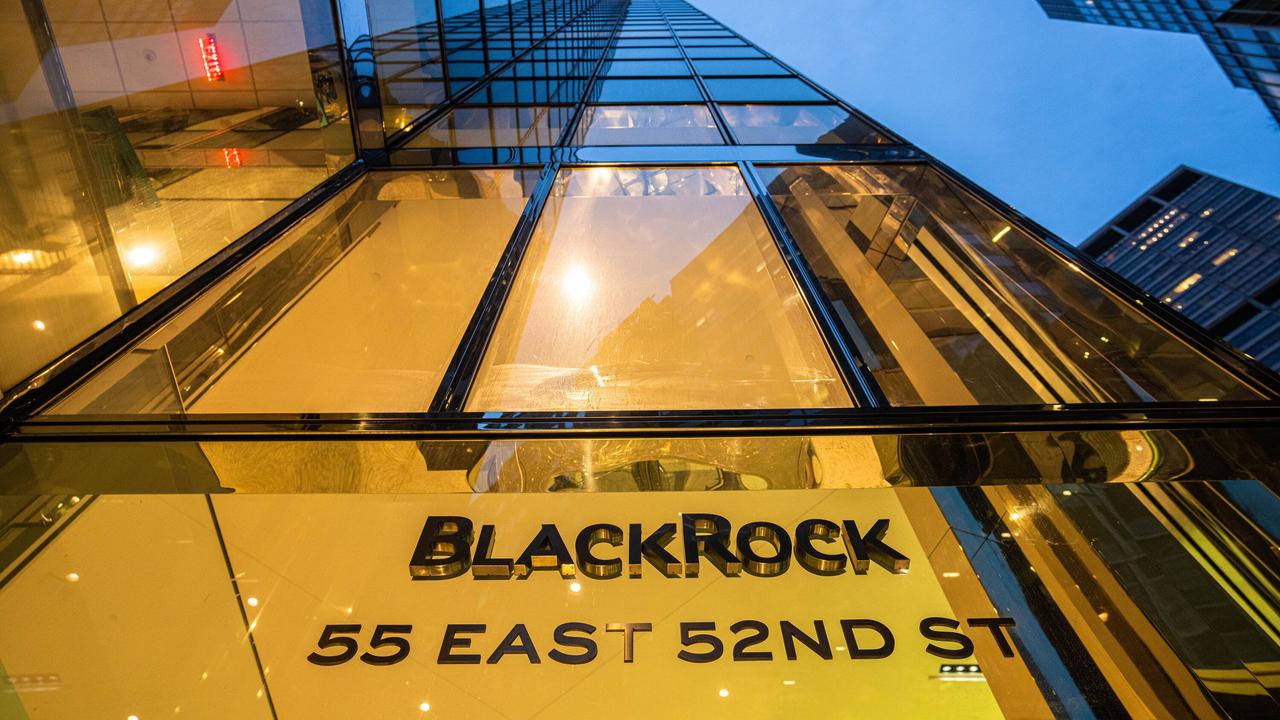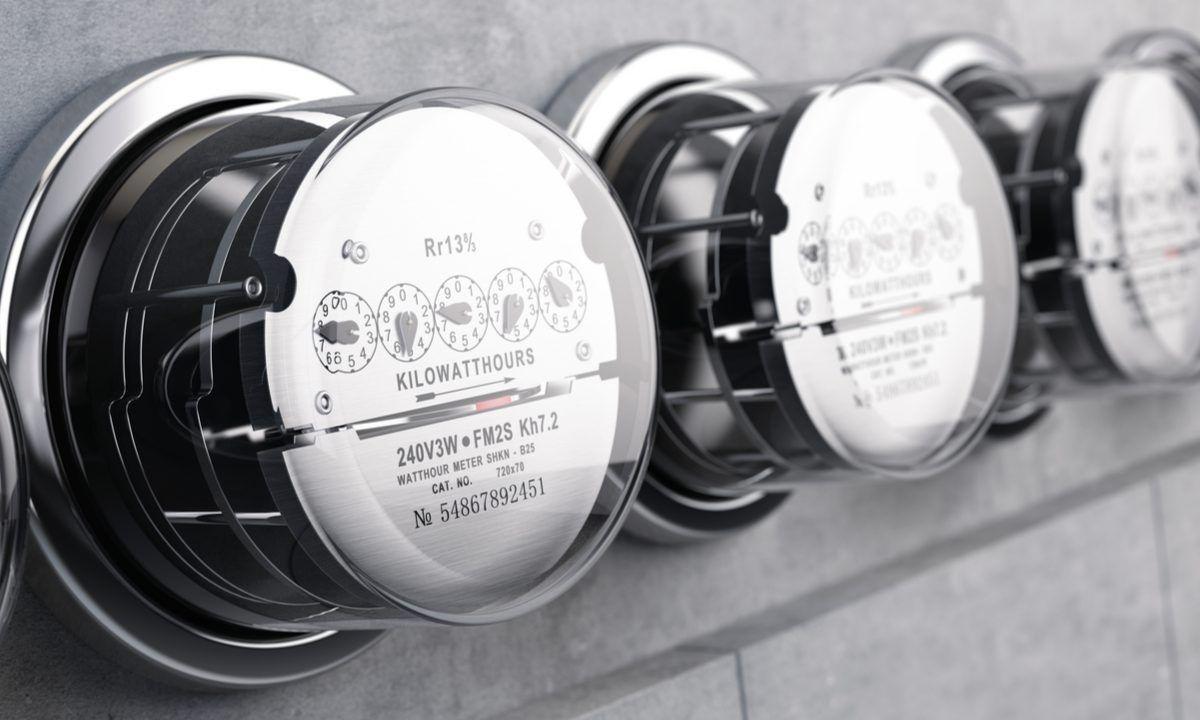Wall Street Firms Eye Utility Acquisitions to Capitalize on AI-Driven Energy Demand
2 Sources
2 Sources
[1]
Wall St. Firms Are Buying Utilities to Tap Into the A.I. Boom
Consumer groups say proposals by BlackRock and Blackstone to buy energy companies in Minnesota, New Mexico and Texas could hurt residents. Large Wall Street investment firms are moving to acquire U.S. utility companies in an effort to benefit from the rising demand for electricity from data centers. But the deals are increasingly being contested by consumer groups who say they will lead to higher energy costs for residents. BlackRock, the world's largest asset manager, last year proposed buying Minnesota Power, a utility that owns several power plants and thousands of miles of power lines that could help technology companies secure energy for their data centers. But a state administrative law judge recommended late Tuesday that Minnesota utility regulators deny the proposed acquisition sought by BlackRock's Global Infrastructure Partners division and the Canada Pension Plan Investment Board. The utility provides power to 150,000 residential and business customers, largely in northern Minnesota, including Duluth and Grand Rapids. The acquisition appeared to be on a smoother glide path late last week when the Minnesota Department of Commerce removed its opposition to the deal and entered an agreement with the parties involved in the transaction. The recommendation of the administrative law judge, Megan J. McKenzie, is not binding, but it could sway the Minnesota Public Utilities Commission, whose approval is necessary for the acquisition to advance. She highlighted concerns of opponents of the deal that the investment firms would prioritize making money over ensuring reliable electricity service, potentially harming consumers. "The nonpublic evidence reveals the partners' intent to do what private equity is expected to do -- pursue profit in excess of public markets through company control," Judge McKenzie wrote. "The partners themselves have carefully committed to do very little." BlackRock did not immediately respond to requests for comment. Minnesota is one of many states where technology companies plan to build data centers. The energy-hungry facilities typically require local utilities to make significant upgrades to their systems. Such upgrades can be a financial boon to utilities, which typically make a guaranteed rate of return on every dollar they spend on power plants and lines. BlackRock is not alone in seeking to acquire utilities. In May, Blackstone, a private equity firm, announced an agreement to buy Albuquerque-based TXNM Energy, which operates utilities with 800,000 residential and business customers in New Mexico and Texas. Blackstone already was moving rapidly into the clean energy business in New Mexico and to develop data centers in the state. Federal and state regulators are reviewing the deal. Blackstone said it expected to complete the overall transaction by the second half of 2026, if it receives all the required approvals. "We will continue to collaborate with customers, communities, legislators and regulators to achieve our shared goals for a reliable, resilient grid to support economic prosperity and clean energy," Pat Collawn, chief executive of TXNM, said in a statement announcing the deal. Some consumer and progressive groups contend that investment firms shouldn't own electric utilities because they generally seek to maximize profits, often by burdening the company's finances with large amounts of debt. That approach, the critics argue, could lead to much higher electricity rates and less reliable service. "No one in northern Minnesota wants higher utility bills solely to line the pockets of Wall Street-based private equity firms," said Nichole Heil, senior researcher and campaign director for climate at the Private Equity Stakeholder Project, a research and advocacy organization that is critical of the private equity industry. Electricity rates are already rising quickly across much of the country. Some of the increases are tied to upgrades that utilities are making to harden their networks to withstand extreme weather linked to climate change. The average monthly electricity bill for a typical household that uses 1,000 kilowatt-hours of energy a month rose almost 4 percent in April from a year earlier, to $175, according to the Energy Information Administration. Rates are also rising because electricity demand has been climbing for the first time in more than a decade, in large part because of the growth of data centers, factories, electric vehicles and heat pumps. The prospect of that growth, and upgrades needed to support it, could be good for some utilities, which stand to earn higher profits. U.S. utilities typically receive a guaranteed rate of return of around 11 percent on the investments they make in their grids. Utilities also have state-sanctioned monopolies in their service areas, making them stable and lucrative investments. Those factors have made utilities attractive to investment firms. Some state officials have backed acquisitions of utilities by Wall Street firms under certain conditions. The Minnesota Department of Commerce initially opposed BlackRock's purchase of Minnesota Power, a division of Allete. But the department said in a filing on Friday that it had reached an agreement with BlackRock that it said would protect residents. The agreement forbids BlackRock to pass acquisition costs on to utility customers, and requires assurances that programs such as those for low-income consumers would remain in place. "These commitments include a substantial array of additional public interest benefits, risk-mitigation tools and customer protections beyond those originally proposed by petitioners in this proceeding," the state's Commerce Department said in the agreement.
[2]
AI Demand Has Wall Street Snatching Up Utility Companies | PYMNTS.com
The goal, as The New York Times (NYT) reported Thursday (July 17), is to benefit from the rising demand for electricity from data centers. Among the investment groups engaged in this effort is BlackRock, the world's largest asset manager, which wants to acquire Minnesota Power. That utility owns several power plants and thousands of miles of power lines that could help artificial intelligence (AI) companies secure energy for their data centers. However, this deal is facing pushback, with a state administrative law judge recommending this week late Tuesday that Minnesota utility regulators deny the proposed acquisition. Another investment group, private equity firm Blackstone, announced an agreement in May to purchase Albuquerque-based TXNM Energy, which provides electricity to 800,000 residential and business customers in New Mexico and Texas. These efforts have drawn criticism from consumer and progressive groups, who argue investment firms shouldn't own electric utilities as they typically want to maximize profits, often by burdening the company's finances with debt. This approach, the critics argue, could lead to much higher rates and worse service. "No one in northern Minnesota wants higher utility bills solely to line the pockets of Wall Street-based private equity firms," said Nichole Heil, senior researcher and campaign director for climate at the Private Equity Stakeholder Project. The report notes that electricity rates are rising around the country, in part because of upgrades to address climate change, and in part because of increased demand from AI data centers. The news comes days after the announcement that Google, Meta, Blackstone and CoreWeave were planning to spend hundreds of billions of dollars to construct new AI data centers Google told PYMNTS Tuesday (July 15) that it plans to spend $25 billion over the next two years on data centers and AI infrastructure in the PJM electric grid region, a coverage area that runs from New Jersey to North Carolina and Illinois to the nation's capital. "Google's investments announced today will increase energy abundance and empower Americans with the skills needed to thrive in the AI era," Alphabet and Google President Ruth Porat said in a statement provided to PYMNTS. One day earlier, Meta CEO Mark Zuckerberg wrote on a Facebook post that his company would invest "hundreds of billions of dollars into compute to build superintelligence." Compute refers to computational power, covering chips, servers and connectivity in data centers.
Share
Share
Copy Link
Major investment firms like BlackRock and Blackstone are moving to acquire U.S. utility companies, aiming to benefit from the increasing electricity demand driven by AI data centers. However, these deals face opposition from consumer groups and regulators over concerns about potential rate hikes and service reliability.
Wall Street's Strategic Move into Utilities
In a significant shift driven by the artificial intelligence (AI) boom, major Wall Street investment firms are making strategic moves to acquire U.S. utility companies. This trend is primarily fueled by the rising demand for electricity from data centers, which are essential for powering AI technologies
1
2
.Key Players and Their Acquisitions

Source: NYT
BlackRock, the world's largest asset manager, has proposed buying Minnesota Power, a utility that owns several power plants and thousands of miles of power lines. This acquisition could potentially help technology companies secure energy for their data centers
1
. Similarly, Blackstone, a private equity firm, announced an agreement in May to buy Albuquerque-based TXNM Energy, which operates utilities serving 800,000 residential and business customers in New Mexico and Texas1
2
.Regulatory Challenges and Consumer Concerns
These acquisition attempts are facing significant pushback from regulators and consumer groups. In Minnesota, an administrative law judge recommended that utility regulators deny BlackRock's proposed acquisition of Minnesota Power. The judge highlighted concerns that the investment firms might prioritize profit over ensuring reliable electricity service
1
.Consumer and progressive groups argue that investment firms shouldn't own electric utilities due to their profit-maximization strategies, which often involve burdening companies with large amounts of debt. Critics fear this approach could lead to higher electricity rates and less reliable service
1
2
.The AI-Driven Energy Demand
The surge in energy demand is largely attributed to the growth of data centers, which are crucial for AI operations. Tech giants are investing heavily in this infrastructure:
- Google plans to spend $25 billion over the next two years on data centers and AI infrastructure in the PJM electric grid region
2
. - Meta CEO Mark Zuckerberg announced plans to invest "hundreds of billions of dollars into compute to build superintelligence"
2
.
Related Stories
Impact on Electricity Rates and Infrastructure

Source: PYMNTS
Electricity rates are already rising across much of the country, partly due to upgrades utilities are making to withstand extreme weather linked to climate change. The average monthly electricity bill for a typical household rose almost 4% in April from a year earlier
1
.The growing demand from data centers, electric vehicles, and heat pumps is driving utilities to make significant upgrades to their systems. While these upgrades can be financially beneficial for utilities, which typically earn a guaranteed rate of return on investments, they also contribute to rising costs for consumers
1
.The Future of Utility Ownership
As the AI boom continues to drive energy demand, the battle over utility ownership is likely to intensify. State officials and regulators are grappling with how to balance the potential benefits of investment firm acquisitions with the need to protect consumers and ensure reliable service. The outcome of these regulatory decisions will play a crucial role in shaping the future of energy infrastructure and AI development in the United States
1
2
.References
Summarized by
Navi
Related Stories
US Utilities Face Unprecedented Power Demands from AI Data Centers
07 Apr 2025•Business and Economy

AI-Driven Power Demand Fuels Record M&A Activity in US Energy Sector
13 Mar 2025•Business and Economy

AI Boom Drives Up Utility Bills: The Hidden Cost of Technological Progress
18 Oct 2025•Business and Economy

Recent Highlights
1
OpenAI secures $110 billion funding round from Amazon, Nvidia, and SoftBank at $730B valuation
Business and Economy

2
Anthropic stands firm against Pentagon's demand for unrestricted military AI access
Policy and Regulation

3
Pentagon Clashes With AI Firms Over Autonomous Weapons and Mass Surveillance Red Lines
Policy and Regulation





